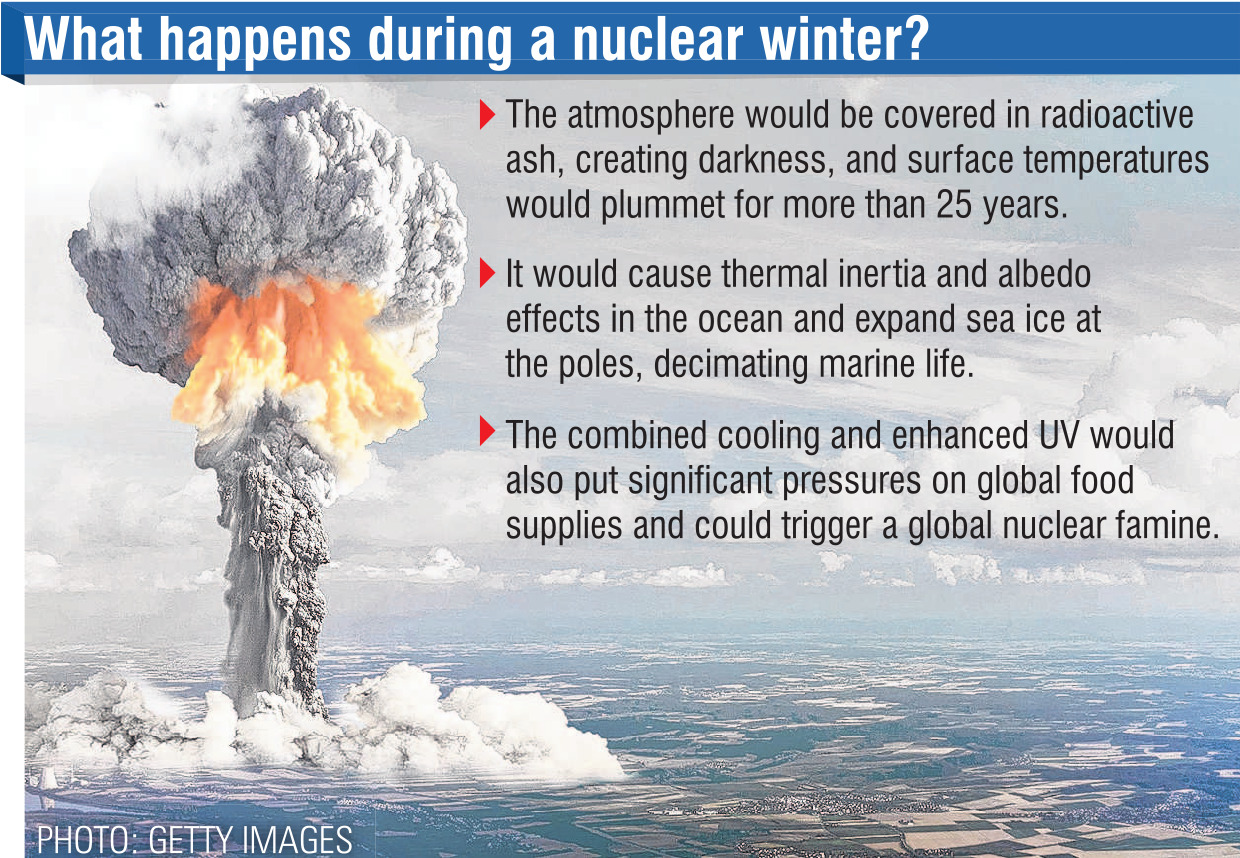
University of Otago (Wellington) public health researcher Prof Nick Wilson and Adapt Research independent researcher Dr Matt Boyd said five island nations, including New Zealand, would be well placed to continue to produce food, despite the reduced sunlight and cooler temperatures caused by soot in the atmosphere following a nuclear war in the northern hemisphere.
Australia (an island continent), Iceland, Vanuatu and the Solomon Islands were also likely to have robust food self-sufficiency, even in an extreme nuclear winter.
Prof Wilson said while New Zealand was likely to continue to be able to produce enough food, its production and distribution was still threatened by the country’s extreme dependence on imported commodities, such as refined fuel.
The researchers investigated the impact of abrupt sunlight-reducing scenarios caused by nuclear war, super volcano eruptions or asteroid impacts on agricultural production globally.
They applied published crop models under "nuclear winter" conditions to 38 island nations, combining this with other methods to estimate the food calorie supply.
They also assessed a range of resilience factors that might protect countries from the impacts of a nuclear winter.
Although some other nations would likely be able to produce enough food, Dr Boyd said other factors such as the collapse of industry and social functioning, placed their resilience in doubt.
Prof Wilson said the findings were consistent with a 1980s study on the impact of nuclear war on New Zealand, although the country’s resilience had declined since then because of its dependence on imported diesel and digital infrastructure, which has grown.
"Islands such as New Zealand are often very dependent on imports of refined liquid fuel, may lack energy self-sufficiency and are susceptible to breakdowns and shortages of critical commodities.
"While New Zealand could divert a high proportion of its dairy exports to supply the local market, it lacks the ability to manufacture many replacement parts for farm and food processing machinery."
Dr Boyd said the study highlighted the precarious position many countries would find themselves in during a global catastrophe.
"New Zealand has the potential to preserve an industrial society through this kind of catastrophe, but it is not plug-and-play.
"A decent amount of strategic planning needs to happen and across a long period of time, but this planning would have benefits in dealing with a wide range of extreme risks."
He said there was a need to analyse nuclear winter and other abrupt sunlight reducing scenarios as part of a comprehensive national risk assessment.
"We are not aware of any plan for this kind of global catastrophe, including whether priorities for rationing have been considered.
"With the Government expected to release New Zealand’s first national security strategy this year, it is important that the catastrophic risks associated with abrupt sunlight-reducing scenarios do not slip through the cracks."












